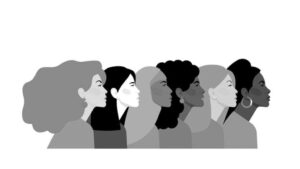Table of Contents
INTRODUCTION
The Indian constitution secures for all its citizens “Justice” – social, economic and political, “Liberty” – of thoughts, expression, belief, faith, and worship, “Equality”- of status and opportunity and dignity of the individual and the integrity of the nation.’ With such wordings, the preamble of the Indian constitution ensures the basic human rights of all men as well as women. Many women in this country are not aware of their rights. “Women’s rights are human rights”
The following are the women’s rights in India based on gender equality:
- Right to Equality under Article 14
- Right against Discrimination
- Right to Equal opportunity in Public Employment
- Right to Freedom of Speech and Expression
- Right to work
- Right to Life and Personal Liberty
- Right against Exploitation
- Right to Livelihood
- Equal Pay for Equal Work
- Just and Human Conditions of Work and Maternity Relief
- Right of Constitutional Remedies

Right to Equality under Article 14
All human beings are born free and equal in dignity and rights and article 7 provides for equality before law. Under the constitutional framework of India the status of women is equal to men in the eyes of law because the state cannot deny to any person equality before the law or the equal protection of laws within the territory of India
Right against Discrimination
All the rights and freedoms without any discrimination. Article 7 also talks about equal protection against discrimination. Indian citizens can also not be discriminated on the basis of their sex by any government authority because the state cannot discriminate against any citizen on grounds only of religion, race, caste, sex, and place of birth or any of them
No citizen shall, on grounds only of religion, race, caste, sex, place of birth or any of them, be subject to any disability, liability, restriction or condition with regard to:
- Assess to shops, public restrictions, hotels, and places public entertainment or
- The use of wells, tanks, bathing Ghats, roads, and places of public resorts maintained wholly or partly out of state funds or dedicated to the use of the general public.[8] However, the state can make special provisions for women under clause (3) of the article as exceptions to the principles of non-discrimination.
Right to Equal opportunity in Public Employment
Women are able to get equal opportunity pertaining to public employment because there is equality of opportunity for all citizens, whether males or females, in matters relating to employment or appointment to any office under the state and No citizen can, on grounds only of religion, race, caste, sex, descent, place of birth, residence or any of them, be ineligible for or discriminated against in respect of any employment or office under the state. However, the government has the authority to make rules for reservation
Right to Freedom of Speech and Expression
Everyone has right to freedom of opinion and expression. Women can raise their voices for any matter affecting them by using their right under Article 19 (1) (a) of the Indian Constitution which guarantees freedom of speech and expression to all citizens.
Right to work
Indian Constitution through article 19 (1) (g) provides the right to work to Indian women by ensuring freedom to all citizens for occupation, profession, and business.
Right to Life and Personal Liberty
The right to life, liberty and security of a person has been recognized under article 3 of UDHR. Article 21 of the Indian Constitution also provides the right to live to all women and men as per their own choice by constitutional guarantee that no person shall be deprived of his/her life or personal liberty except according to procedure established by law.
Right against Exploitation
Indian Constitution under article 23 protects against human trafficking and bonded labour, which works as a shield for women’s safety and ensures their right to work. For implementing the idea of this article, the Indian parliament enacted the Suppression of Immoral Trafficking in women and girls Act, 1956 which was renamed the Immoral Trafficking (Prevention) Act, 1956. The Constitutional Scheme of Directive Principles of State Policy directs the state to secure the idea of women’s rights in the society. These are the relevant articles in this regard
Right to Livelihood
Article 39 (a) provides that the citizen, whether men or women, equally have the right to an adequate means to livelihood.
Equal Pay for Equal Work
According to Article 39(d) and Article 41 of the Indian Constitution, both men and women are entitled to equal pay for equal work. They form the Directive Principles of State Policy. The Equal Remuneration Act of 1976 also plays a crucial role and is a prime example of this. Section 4 of the Act not only stresses equal pay for equal work but also prohibits employers from reversing their pay scales to achieve an equilibrium.
Just and Human Conditions of Work and Maternity Relief
Article 42 of the Constitution directs that the state shall make provisions for securing just and human conditions of work and for maternity relief.
Right of Constitutional Remedies
In case of the violation of any of these fundamental rights, the aggrieved woman can move Supreme Court and High Court and file writ petition under Article 32 & Article 226 for seeking remedy but there is no such mechanism available in case of Directive Principles of State Policy, which are not enforceable by any court under writ jurisdiction
